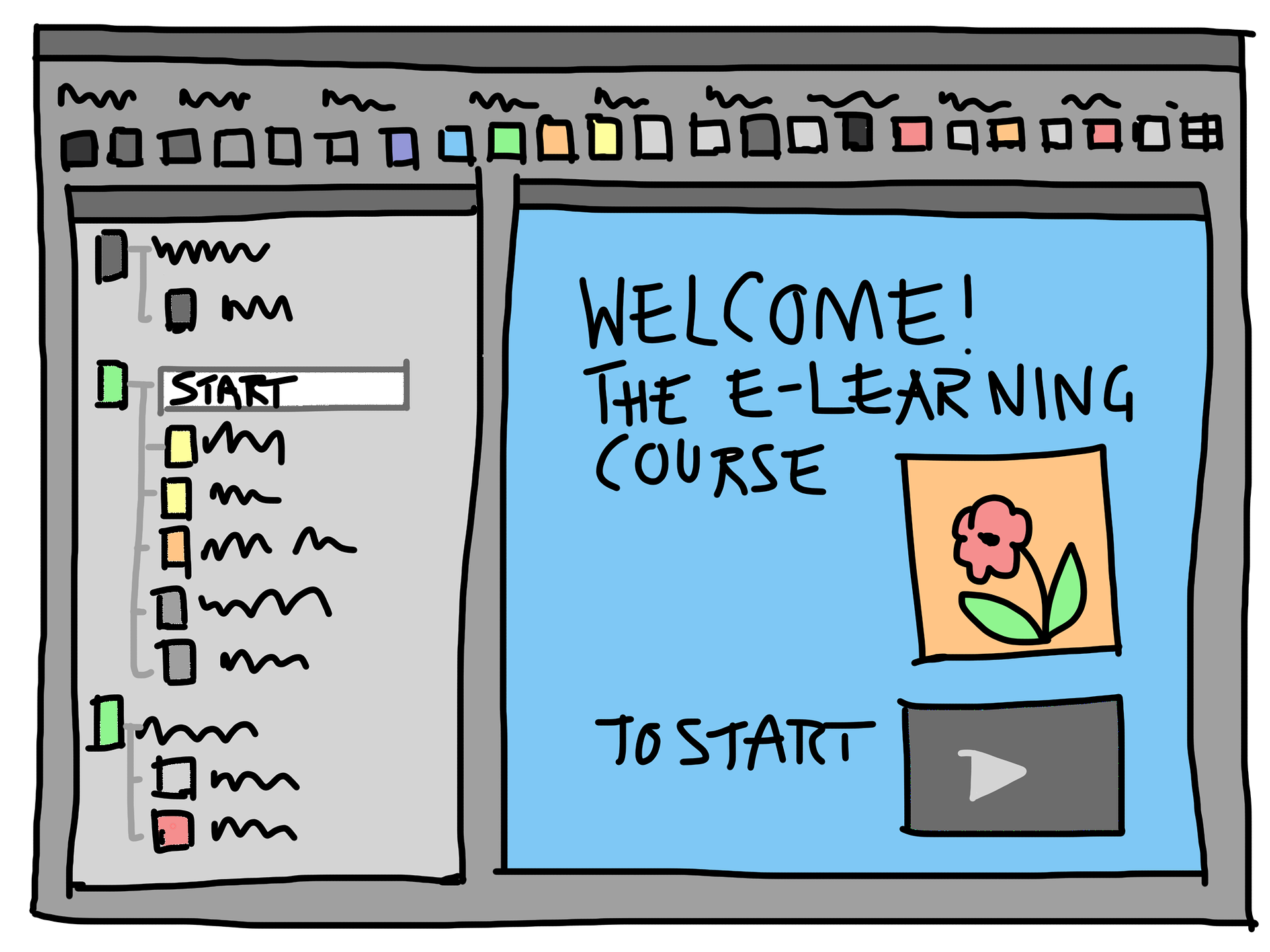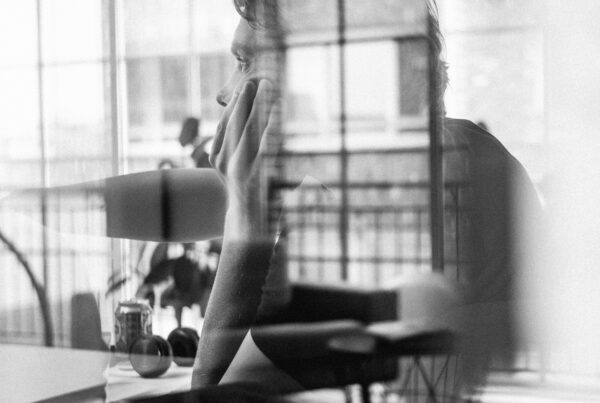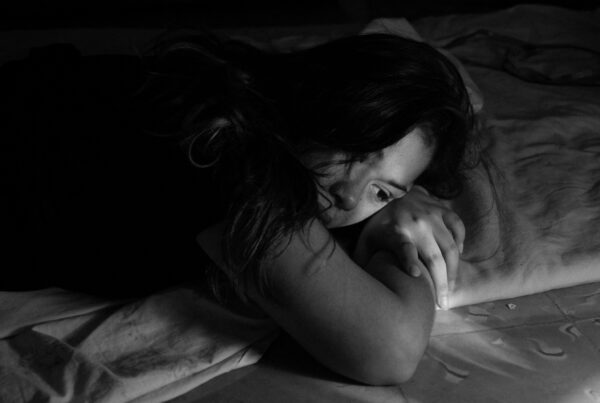

Photo by Sandra Schön
Almost a year ago, I was forced to take a lunch break as my unstable internet connection made it impossible to watch my lecture when I got an email notification. The preview titled “How are you doing? – Fill out the UvA Crisis Monitor”. Resignedly I thought ‘Well, could be better’. And I am sure I was not the only one.
Students and staff were all asked to fill out the questionnaire and the follow-ups of the Crisis monitor a few times now. Since April, we’ve been getting updates about the results every now and then, telling us how the majority seems to be doing. The monitoring mails stated that ‘the programmes, faculties and central organization of the UvA’ want to find out how the situation is impacting the students – emphasizing their desire to know what they could possibly do better to support us during the pandemic. Well, that is a good goal, isn’t it? At least I thought so (probably along with many others) and filled out some surveys over the last weeks and months.
In the last few months, I realized that an increasing number of people stayed after tutorials in the meetings to talk about their struggles with studying, and to discuss the situation in general. With every passing month, the faces and voices in zoom meetings seem a bit more stressed, exhausted, and almost numb. When looking carefully, one can probably read those feelings from our faces. But ‘the show must go on’. Not only do we need this degree to do what we want, but I guess most of us also really like our studies. So, we need to get on with it. And from time to time, a wave of new motivation seems to arrive. For example, after the Christmas holidays, almost everyone seemed to have found some rest. But these waves abate as fast as they come and soon the previous mood seems to have returned.
My observations partly mirror the findings of the crisis monitor. The first findings were published in April and got updated in December and the results were not really shocking, indicating that students and staff are concerned about COVID-19 and that the study pressure is high. On a scale of 1 to 10, students rated the study pressure on average at 7.6 and indicated that they miss social contacts, physical lectures, and tutorials as well as being outside the home. Not very surprising so far, especially considering the fact that we have been studying remotely since March 2020. Even the usually optimistic people are starting to feel ‘the blues’ induced by this ongoing situation without a real end in sight.
After a year of studying from home and several crisis monitors, the UvA knows about the high stress levels and how we all feel about the situation – at least to some extent. The Executive Board and deans of the faculties know the findings of the crisis monitor and they must feel the need to try and come up with some ideas on how to reduce the stress and make people feel a little more comfortable with the situation again. After all, the UvA published in December that they ‘have discussed the results, and together they are looking at ways to achieve improvements, particularly with regard to study and work pressure’. Unfortunately, improvements like these are hard to find. Although it was known – since April 2020 – that over 50% of students indicated that the academic stress is higher or much higher than under normal circumstances, not a lot of measures were taken to combat this.
Instead, last week we got a notice from the Education Desk that the measures for the coming proctored online exams will become even stricter, as some students thought it would be a good idea to cheat. Many of us complained – rightfully so, I suppose – and organized different solutions to change the situation. It is understandable that the UvA needs to keep up the credibility of our degree and the validity of our exams. It is also not good for us when our degree loses its worth – especially as we work so hard for it. However, the measures that are supposed to be applied for the next exams feel like a strong punishment for all of us. It has increased the anxiety and worries that were already there – as there is always something that can go wrong with online exams – and added an extra stress factor. After a lot of emails, petitions, and meetings, all psychology students were offered two options by the Education desk and were allowed to vote for one. Personally, I found it a bit disappointing to only be able to vote for two ‘one size fits all’ options. Given that we are all doing different specializations, our exams are not structured the same, hence, specific solutions for each specialization would have been a much fairer solution. But no matter what we feel about the solution they offered, we have to appreciate that they reacted and came up with one.
This could be a good starting point to also address the other, aforementioned, problems. I cannot help but ask myself: Is anyone really caring about how we feel, and if so, what are they doing? I personally haven’t seen any helpful measures that improve our situation, and I am worried about the mental health of many students. I suppose everyone who is reading this knows how problematic and damaging constant high stress levels can be. The effects are not just minor symptoms and not only our mental health, but our bodies also suffer a lot when faced with very high levels of stress over an extended period of time (Dhabhar, 2014). Assuming that it is probably not the UvA’s goal to breed a bunch of burned-out zombies, I wonder whose responsibility it actually is to take action and whether they are going to take any.
At the same time, I know that we have to keep up the high standard of our renowned institution and that most of us are very privileged in this situation. Especially regarding the possibility of having a continuous online education without ‘huge problems and major study delays. Our lecturers try their best and we should not forget that they also have to manage everything online now, possibly while having to handle homeschooling and other challenges.
This being said, I of course do not just want to rant about the situation but also make two suggestions. It is of course not possible to ‘just decrease the workload’, we still need to have learned the same amount by the end of our education as we would have before corona and fulfill our curriculum. So, if it is not possible to decrease the study load, a good starting point could be to make the exam regulations more bearable – and fairer. It is very stressful to know that you may have to retake a whole course in the summer, just because your internet connection broke down. Not everyone has a great and stable internet connection at home and even if you do, the prospect of having to study the whole course material in the summer again – even though you put in all the time and effort to prepare for an exam – is a frightening one. And I cannot even imagine living in a different time zone and having to take exams as early as 4 a.m.…. I do not want to accept that this is the only way.
Additionally, more opportunities to use study places at the campus – with the necessary hygiene measures and distance – would be helpful too, and those opportunities should be communicated more clearly. More and more universities in the Netherlands are already implementing opportunities like that. This is a useful idea as some students may not have a quiet place to study at home and some might just really need to get out of their 9 sqm student room sometimes.
These are just two suggestions, and many students perhaps have more ideas on how the situation could be improved. So, my last request is a very basic one: Instead of sending out another crisis monitor that finds out how we are doing, it would be a great idea to conduct a survey that asks about our needs and suggestions.
Until any improvement happens – or until things slowly go back to normal – we will continue to combat our zoom fatigue, internet problems, study pressure, and worries about our families and friends. In the meantime, I personally hope that the UvA will take a step forward, take our concerns and problems seriously, and will start to act in a way that shows us that they really care about our well-being and mental health. This morning, I filled out yet another survey for the crisis monitor, and I still have hope that the findings of this one will help change our situation for the better.
References
– Dhabhar, F.S. Effects of stress on immune function: the good, the bad, and the beautiful. Immunol Res 58, 193–210 (2014). https://doi.org/10.1007/s12026-014-8517-0
– The impact of the second corona wave on studying and working at the UvA (15.12.2020). https://www.uva.nl/en/content/news/news/2020/12/the-impact-of-the-second-corona-wave-on-studying-and-working-at-the-uva.html)

Photo by Sandra Schön
Almost a year ago, I was forced to take a lunch break as my unstable internet connection made it impossible to watch my lecture when I got an email notification. The preview titled “How are you doing? – Fill out the UvA Crisis Monitor”. Resignedly I thought ‘Well, could be better’. And I am sure I was not the only one.
Students and staff were all asked to fill out the questionnaire and the follow-ups of the Crisis monitor a few times now. Since April, we’ve been getting updates about the results every now and then, telling us how the majority seems to be doing. The monitoring mails stated that ‘the programmes, faculties and central organization of the UvA’ want to find out how the situation is impacting the students – emphasizing their desire to know what they could possibly do better to support us during the pandemic. Well, that is a good goal, isn’t it? At least I thought so (probably along with many others) and filled out some surveys over the last weeks and months.
In the last few months, I realized that an increasing number of people stayed after tutorials in the meetings to talk about their struggles with studying, and to discuss the situation in general. With every passing month, the faces and voices in zoom meetings seem a bit more stressed, exhausted, and almost numb. When looking carefully, one can probably read those feelings from our faces. But ‘the show must go on’. Not only do we need this degree to do what we want, but I guess most of us also really like our studies. So, we need to get on with it. And from time to time, a wave of new motivation seems to arrive. For example, after the Christmas holidays, almost everyone seemed to have found some rest. But these waves abate as fast as they come and soon the previous mood seems to have returned.
My observations partly mirror the findings of the crisis monitor. The first findings were published in April and got updated in December and the results were not really shocking, indicating that students and staff are concerned about COVID-19 and that the study pressure is high. On a scale of 1 to 10, students rated the study pressure on average at 7.6 and indicated that they miss social contacts, physical lectures, and tutorials as well as being outside the home. Not very surprising so far, especially considering the fact that we have been studying remotely since March 2020. Even the usually optimistic people are starting to feel ‘the blues’ induced by this ongoing situation without a real end in sight.
After a year of studying from home and several crisis monitors, the UvA knows about the high stress levels and how we all feel about the situation – at least to some extent. The Executive Board and deans of the faculties know the findings of the crisis monitor and they must feel the need to try and come up with some ideas on how to reduce the stress and make people feel a little more comfortable with the situation again. After all, the UvA published in December that they ‘have discussed the results, and together they are looking at ways to achieve improvements, particularly with regard to study and work pressure’. Unfortunately, improvements like these are hard to find. Although it was known – since April 2020 – that over 50% of students indicated that the academic stress is higher or much higher than under normal circumstances, not a lot of measures were taken to combat this.
Instead, last week we got a notice from the Education Desk that the measures for the coming proctored online exams will become even stricter, as some students thought it would be a good idea to cheat. Many of us complained – rightfully so, I suppose – and organized different solutions to change the situation. It is understandable that the UvA needs to keep up the credibility of our degree and the validity of our exams. It is also not good for us when our degree loses its worth – especially as we work so hard for it. However, the measures that are supposed to be applied for the next exams feel like a strong punishment for all of us. It has increased the anxiety and worries that were already there – as there is always something that can go wrong with online exams – and added an extra stress factor. After a lot of emails, petitions, and meetings, all psychology students were offered two options by the Education desk and were allowed to vote for one. Personally, I found it a bit disappointing to only be able to vote for two ‘one size fits all’ options. Given that we are all doing different specializations, our exams are not structured the same, hence, specific solutions for each specialization would have been a much fairer solution. But no matter what we feel about the solution they offered, we have to appreciate that they reacted and came up with one.
This could be a good starting point to also address the other, aforementioned, problems. I cannot help but ask myself: Is anyone really caring about how we feel, and if so, what are they doing? I personally haven’t seen any helpful measures that improve our situation, and I am worried about the mental health of many students. I suppose everyone who is reading this knows how problematic and damaging constant high stress levels can be. The effects are not just minor symptoms and not only our mental health, but our bodies also suffer a lot when faced with very high levels of stress over an extended period of time (Dhabhar, 2014). Assuming that it is probably not the UvA’s goal to breed a bunch of burned-out zombies, I wonder whose responsibility it actually is to take action and whether they are going to take any.
At the same time, I know that we have to keep up the high standard of our renowned institution and that most of us are very privileged in this situation. Especially regarding the possibility of having a continuous online education without ‘huge problems and major study delays. Our lecturers try their best and we should not forget that they also have to manage everything online now, possibly while having to handle homeschooling and other challenges.
This being said, I of course do not just want to rant about the situation but also make two suggestions. It is of course not possible to ‘just decrease the workload’, we still need to have learned the same amount by the end of our education as we would have before corona and fulfill our curriculum. So, if it is not possible to decrease the study load, a good starting point could be to make the exam regulations more bearable – and fairer. It is very stressful to know that you may have to retake a whole course in the summer, just because your internet connection broke down. Not everyone has a great and stable internet connection at home and even if you do, the prospect of having to study the whole course material in the summer again – even though you put in all the time and effort to prepare for an exam – is a frightening one. And I cannot even imagine living in a different time zone and having to take exams as early as 4 a.m.…. I do not want to accept that this is the only way.
Additionally, more opportunities to use study places at the campus – with the necessary hygiene measures and distance – would be helpful too, and those opportunities should be communicated more clearly. More and more universities in the Netherlands are already implementing opportunities like that. This is a useful idea as some students may not have a quiet place to study at home and some might just really need to get out of their 9 sqm student room sometimes.
These are just two suggestions, and many students perhaps have more ideas on how the situation could be improved. So, my last request is a very basic one: Instead of sending out another crisis monitor that finds out how we are doing, it would be a great idea to conduct a survey that asks about our needs and suggestions.
Until any improvement happens – or until things slowly go back to normal – we will continue to combat our zoom fatigue, internet problems, study pressure, and worries about our families and friends. In the meantime, I personally hope that the UvA will take a step forward, take our concerns and problems seriously, and will start to act in a way that shows us that they really care about our well-being and mental health. This morning, I filled out yet another survey for the crisis monitor, and I still have hope that the findings of this one will help change our situation for the better.



